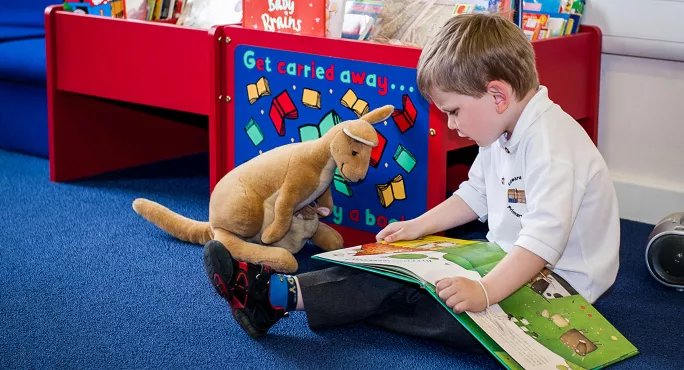7 in 10 teachers say pupils with SEND not effectively supported

Around seven in 10 teachers (69 per cent) believe that students with special educational needs and disabilities (SEND) or additional learning needs are “being ineffectively supported by the current education system”, according to survey results in a new report.
The findings come in Pearson’s School Report 2023, published today, and are based on a Teacher Tapp survey of more than 6,000 teachers in England.
It also outlines how the awarding body has delivered a remote invigilation pilot scheme to more than 100 students - many with SEND, anxiety or health complications - which allowed them to complete exams from home.
The report comes as the latest Department for Education figures revealed there were more than 1.5 million pupils with SEND in schools in England, including 389,171 with education, health and care plans (EHCPs) and 1,183,384 receiving SEN support.
- De Souza: Bring in SEND reforms ‘quickly’
- Background: Pupils with SEND in schools top 1.5 million
- SEND support in schools: Education, health and care plans on the increase
The Pearson report also reveals that double the proportion of secondary school teachers expect teacher recruitment and retention to be a challenge to manage over this year (64 per cent) compared with their primary counterparts (32 per cent).
The Teacher Tapp survey found that more than six in 10 (61 per cent) teachers have said they are witnessing a rise in pupil anxiety around mental health and wellbeing, up from 41 per cent in 2022.
And 64 per cent of school leaders expect budget pressures to be a challenge to manage over the next 12 months, up from 54 per cent in 2022.
Teachers also expect mental health, attendance and SEND to be the biggest barriers to their pupils’ learning over the next six months.
Remote invigilation pilot has ‘rewritten the rules’
The report outlines how a new remote invigilation pilot scheme run by Pearson this year allowed students to complete their exams online from home via a remote invigilation pilot.
In the tests, students were invigilated via their webcam, smartphone camera and screen share.
UK-based online school King’s InterHigh - which is part of the Inspired education group of private schools - took part in the remote invigilation pilot with Pearson.
Speaking about the impact of technology on his students, Ashley Harrold, chief executive of online schools at Inspired, said: “The pilot between King’s InterHigh and Pearson has fundamentally rewritten the rules on what inclusive access to assessment means.”
Mr Harrold said that the access to qualifications had been “widened” to students who “otherwise would have been unable to achieve their potential”.
The pilot involved Pearson Edexcel International GCSE and A level exams.
‘Striking school-wide digital inequalities’
The Pearson report has also found that just over a third (35 per cent) of teachers in private schools have access to regular training on digital learning tools and edtech advancements, compared with just 15 per cent of teachers at state-funded schools.
Hayley White, vice president for assessment, standards and services at Pearson, said that while “technology has the power to transform education for all learners”, there are “striking school-wide digital inequalities” in schools across the country.
The report found that just over half of schools have access to reliable wi-fi across the entire school, while a third say it is only reliable in parts of the school.
And less than half of teachers in secondary schools said that they had access to laptops for in-class learning, compared with 64 per cent of teachers in primary schools.
When it comes to SEND specifically, fewer than one in 10 teachers said they had access to assistive technologies such as screen and braille readers for students to use.
Register with Tes and you can read two free articles every month plus you'll have access to our range of award-winning newsletters.
Keep reading with our special offer!
You’ve reached your limit of free articles this month.
- Unlimited access to all Tes magazine content
- Save your favourite articles and gift them to your colleagues
- Exclusive subscriber-only stories
- Over 200,000 archived articles
- Unlimited access to all Tes magazine content
- Save your favourite articles and gift them to your colleagues
- Exclusive subscriber-only stories
- Over 200,000 archived articles



